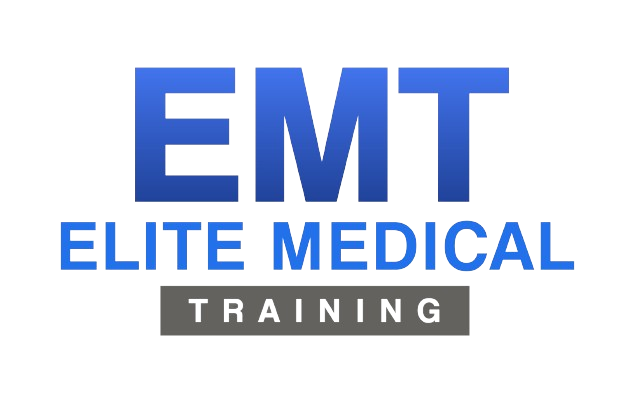Healthy Living and Disease Prevention
For most people, a ‘healthy lifestyle’ means that both physical and mental health are in balance or work well together. Physical and mental health are often closely linked, and changes in one (whether good or bad) directly affect the other. As a result, some tips contain suggestions for “healthy living” emotionally and mentally.
This article is intended to provide readers with tips on how to improve or expand behaviors in their lives in order to lead a healthy lifestyle. It is not intended to be exhaustive, but it is intended to include key elements that are considered part of a healthy lifestyle. In addition to tips on what to do to live a healthy life, this article will also give you tips on how to avoid behaviors (and don’ts) that lead to an unhealthy life.
Healthy Diet
All humans need food to grow and maintain a healthy body, but we humans have different nutritional needs as infants, children (children), adolescents, adolescents, adults, and the elderly. For example, infants may need to be fed every 4 hours until they get older and start eating more solids. Eventually, in early childhood she develops a more normal pattern of eating three times a day. But as most parents know, children, teens, and young adults often snack between meals. Adults and seniors often do the same things, so snacking is often not restricted to these age groups.

Tips for everyday healthy eating:
- Eat three healthy meals a day (breakfast, lunch, and dinner). It’s important to remember that dinner doesn’t have to be your biggest meal.
- Choose foods low in saturated fat, trans fat, cholesterol, salt (sodium), and added sugar. Check the label, as the item listed first on the label has the highest concentration of ingredients.
- The majority of your diet should consist of healthy foods such as fruits, vegetables, whole grains, and fat-free or low-fat dairy products.
- A healthy snack should be moderate and consist of fruits, whole grains, or nuts to satisfy hunger and not cause excessive weight gain.
- Avoid eating raw or undercooked meat of any kind.
- Control portion size. Eat the smallest portion that can satisfy your hunger and then stop eating.
- A vegetarian lifestyle is promoted for healthy living and weight loss. Vegetarians should check with their doctor to make sure they are getting enough vitamins, minerals, and iron from their diet.
- Avoid carbonated and sugary drinks, as they are high in calories. Diet drinks may not be a good choice because they make some people hungry and increase their food intake.
- Avoid eating large meals before bed to reduce gastroesophageal reflux and weight gain.
- When a person is angry or depressed, eating may not resolve the situation and may exacerbate the underlying problem.
- Avoid giving your child sweet treats. Such patterns can become lifelong habits of people.
- Avoid heavy meals during the summer, especially on hot days.
- Include lean meats, poultry, fish, beans, eggs, and nuts (with a particular emphasis on beans and nuts) in your healthy diet.
- Include lean meats, poultry, fish, beans, eggs, and nuts (with a particular emphasis on beans and nuts) in your healthy diet.
- Cooking food (above 165 degrees Fahrenheit) destroys most harmful bacteria and other pathogens. If you choose to eat raw foods such as fruits and vegetables, wash thoroughly with treated (drinkable) tap water under running water just before eating.
Exercise
Physical Health
Physical activity and exercise contribute significantly to a healthy lifestyle. People are forced to use their bodies, and not using them leads to an unhealthy life. An unhealthy lifestyle manifests itself in obesity, wasting, lack of endurance, and general poor health, all of which can lead to the development of disease.
Tips:
- We recommend doing at least 30 minutes of light exercise (walking is fine) at least 3-5 days a week, but you’ll get the best health benefits if you exercise most days of the week.
- Exercise during strenuous exercise can tire a person and cause pain, but if pain occurs, stop exercising until the cause of the pain is discovered. may need to seek help or advice from a doctor.
- Children’s sports offer great opportunities for exercise, but care must be taken not to overdo certain exercises (for example, in baseball, throwing too many balls can damage joints such as elbows and shoulders). There is likely to be).
- Start slowly and increase gradually to avoid injury, undue pain or fatigue. Take your time and stack up to 30-60 minutes of moderate-to-vigorous activity each day.
Benefits:
- Regular exercise prevents and restores age-related loss of muscle mass and strength, improves balance, flexibility and endurance, and reduces the risk of falls in older adults. Regular exercise helps prevent coronary artery disease, stroke, diabetes, obesity, and high blood pressure. Regular weight-bearing exercise also helps prevent osteoporosis by building bone strength.
- Regular fitness can help people with chronic arthritis improve their ability to perform daily activities such as driving, climbing stairs, and opening glasses.
- Regular exercise can help boost self-esteem and confidence, reduce stress and anxiety, improve mood, and improve overall mental health.
- Regular exercise helps control weight and, in some people, leads to fat loss.
Mental Health
A healthy life includes not only physical health, but also emotional or mental health. Below are some ways people can support their mental health and well-being.
Avoidance behavior is another key to wellness.

Tips:
- Take a walk at least a few times a week and reflect on what you’ve seen and heard.
- Try new things often (eat new meals, take different routes to work, go to new museum exhibits).
- Try to focus on one process and complete part of it over an hour or several hours, then take a break and do something relaxing (walk, exercise, short nap).
- People taking medication for mental health problems should not stop taking the medication until they have discussed the situation with their prescribing doctor, no matter how “feeling good” they feel.
- If you are feeling down, have suicidal thoughts, or have thoughts of harming yourself or others, seek help and advice early.
- Do you have a network of friends? People with strong social support systems live healthier lives.
- Have fun (go on a trip with someone you love, go shopping, go fishing; do not let vacation time slip away).
- Learn how to say “no” when something happens that you don’t want to do or participate in.
- Take some free time each week to do something that interests you (hobbies, sports).
Avoidance behavior is another key to happiness. Below are some of the key points that a person should avoid when striving for a healthy lifestyle.
- Avoid tobacco use
- Avoid excessive alcohol consumption
- Avoid high-risk sexual behaviors
- Avoid other high-risk behaviors
There are many other risky behaviors that can interfere with an otherwise healthy lifestyle (e.g., working with toxic or radioactive materials, drug addiction, traveling to areas with unusual epidemics, etc.). , these are too many to list and address in this general article. If you want to know more, subscribe to our mailing list to be updated once we publish a health-related article and more.

